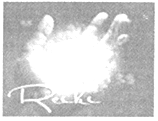题型:阅读理解 题类:常考题 难易度:普通
北京市第四中学2016-2017学年高一上学期期中考试英语试题
根据短文理解,选择正确答案。


Throw out the bottles and boxes of drugs in your house. A new theory suggests that medicine could be bad for your health. This new theory argues that healing (the process of becoming healthy and strong again) is at our fingertips: we can be healthy by doing Reiki on a regular basis.
Supporters of medical treatment argue that medicine should be trusted since it is effective and scientifically proven. They say that there is no need for spiritual methods such as Reiki, Yoga, Tai Chi. These waste our time, something that is quite precious in our material world. There is medicine that can kill our pain and x-rays that show us our broken bones. We must admit that these methods are very effective in the examples that they provide. However, there are some "everyday complaints" such as back pains, headaches, which are treated currently with medicine. When you have a headache, you take an Aspirin; when you cannot sleep, you take Xanax without thinking of the side effects of these. When you use these pills for a long period, you become dependent on them; you cannot sleep without them. We pay huge amounts of money but never get better. How about a safer and more economical way of healing? When doing Reiki to yourself, you do not need anything except your energy so it is very economical. Also, there are no side effects and it is scientifically explained.
They also claim that serious illnesses such as HIV/AIDS and cancer cannot be treated without drugs. They think so because these patients spend the rest of their lives in the hospital taking medicine. How can Reiki make these people healthy again? It is very unfortunate that these patients have to live in the hospital losing their hair and weight because of the side effects of the medicine they take. Actually, instead of drugs which are expensive and have many side effects, you can use your energy to overcome the hardships of life, find an emotional balance, leave the stress of everyday life and let go of the everyday worries.
Some people may still hold that in our material world, everything depends on time. How would it be possible to find time to do Reiki? In fact, Reiki does not require more than 15 minutes of our time. It is less time consuming than medicine if we think of all the time we spend taking medicine for some complaints and taking some more for the side effects as well.
试题篮